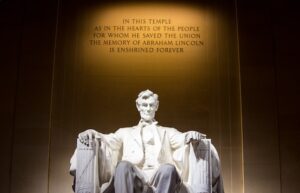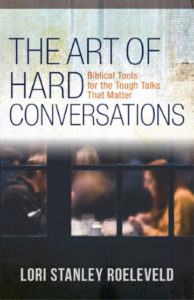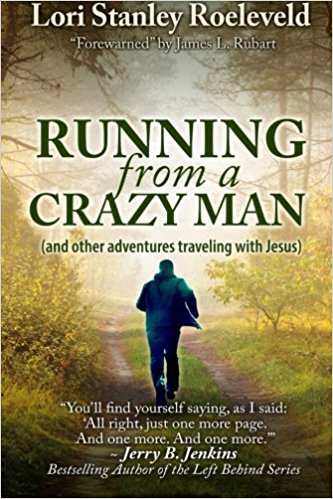Beyond the Sermon on the Mount
 Great leaders make great speeches.
Great leaders make great speeches.
Abraham Lincoln’s Gettysburg Address.
Winston Churchill’s We Shall Never Surrender.
Queen Elizabeth’s (then princess) 21st Birthday Speech.
Rev. Dr. Martin Luther King’s I Have a Dream.
Great speeches inspire. Inform. Incite.
We remember them. Study them. Quote them.
But what lends the greatness to these speeches are the people behind them. Eloquence alone fades.
We remember these speeches because those who delivered them lived them, not only on the mountain tops but also in the trenches.
Lincoln spoke at Gettysburg but day-by-day he carried the responsibility of a divided nation on his knees and in his hard choices.
Churchill suffered years of scorn and rejection from other leaders at his warnings about Hitler. There were years when he believed he was washed up, doomed to be dismissed, but he persevered in sounding the alarm anyway.
Queen Elizabeth’s speech might have been written off as the idealism of a young, impressionable princess if it hadn’t been backed by a lifetime of self-denial and service to God and country.
On Monday, when we replay Dr. King’s speech delivered at the Lincoln Memorial, we should also read his letter Letter from a Birmingham Jail and remember that he suffered daily opposition from those who hated his skin color to those who hated trouble and discomfort—those who sought an easier way forward.
Many students of the Bible and even strangers to the gospel know that Jesus delivered His Sermon on the Mount.
People love to quote soundbites from it.
We enjoy studying it, especially loving certain passages.
We adore the headline of Jesus preaching to the crowd and we always imagine ourselves among the social outsiders listening rapt on the side of the mountain just as easily as we imagine others we know standing judgement with the Pharisees.
 When we replay or reread this famous speech of His, we resolve to follow Jesus anywhere.
When we replay or reread this famous speech of His, we resolve to follow Jesus anywhere.
But we must read on. The sermon ends in Matthew 7, but Matthew kept recording in Matthew 8.
Jesus came down from the mountain and immediately created discomfort in those around Him.
He touched a leper. He had no fear of uncleanness.
He praised the faith of a Roman centurion. He came to save all-even those who were currently enemies of His people.
He made disturbing statements like, “And I say to you that many will come from east and west, and recline at the table with Abraham, Isaac, and Jacob in the kingdom of heaven; but the sons of the kingdom will be thrown out into the outer darkness; in that place there will be weeping and gnashing of teeth.” Matthew 8:11-12 NASB Wait, what? That sounds like eternal judgement.
He healed diseases and cast out demons, which we love, but then we must acknowledge that Jesus believed in demons and in the unseen spiritual world. He had power and authority over illness.
He told a would-be follower that to follow Him meant abandoning the hope of having a home and leaving your dead to bury themselves. What about security? What about self-care? What about traditions?
He slept through a storm threatening to capsize the boat containing Himself and His disciples. He then chided them about their faith before demonstrating He had authority over the wind and the waves. Those closest to Him were not promised an easy ride.
And by the end of chapter 8, an entire town pled with Jesus to go away from them and to leave their region.
What was His offense? He freed the demon-possessed by casting the evil spirits into a herd of pigs who subsequently jumped off a cliff to their deaths. The people clearly valued their pigs more than the freedom of these men.
Jesus disrupted their economy, and they lost revenue. Now, He’d gone from preaching to . . . well, making us uncomfortable. Time for Him to go.
Maybe a few in that town recalled Jesus’ sermon where He said, ““For this reason I say to you, do not be worried about your life, as to what you will eat or what you will drink; nor for your body, as to what you will put on. Is life not more than food, and the body more than clothing?” Matthew 6:25 NASB
Is this what He meant? Sacrificing our entire herd just so two men can live with sound minds and calm spirits? We didn’t know He meant it literally. What do we even know about these guys? Are they worth our pigs?
Our generation insists on whole-hearted acceptance of who we are—every part of us. Do we owe this man who was God less than that?
Jesus didn’t just preach the Sermon on the Mount, He lived it, and asked those who followed Him to live it, too.
Pretty words. Eloquence. Persuasive rhetoric. All pale in the face of truth, love, humility, obedience, forgiveness, service, and sacrifice lived day-by-day, moment-by-moment come what may.
But speeches live on when there is no division between the words and the lives of those who spoke them.
Jesus didn’t preach and live and die so we’d have quotes for our mugs or memes to share on social media.
Jesus died so we could have eternal life and abundant life until He comes.
He didn’t preach the Sermon on the Mount to provide study curriculum for small groups. He spoke living Words that described the life He came to impart.
 Have you read the Sermon on the Mount? That is good.
Have you read the Sermon on the Mount? That is good.
Keep reading. There’s more.
There’s Jesus.
What happens when you read beyond the Sermon on the Mount? Discomfort. https://t.co/EzbnnVz7Pn #MLKDay2023 #Jesus
— Lori Roeleveld (@lorisroeleveld) January 12, 2023











The Conversation
I’m not sure how to respond, Mark. I believe the sermon on the mount and I live redeemed by Christ, under His mercy now.
Well, this post was not about us living out the Sermon on the Mount but Jesus doesn’t expect us to do anything without Him. And now we do nothing out of compulsion but out of love for him
“Having ears but not hearing, eyes, and not seeing.” This is referenced several times in God’s Word, and should serve as a reminder for all of us to check our hearts. Jesus knew many would say, “This is too hard.” It is not. But it’s very uncomfortable. And at times scary. “Follow me.” It’s the best YES I ever said. What I’ve lost is not worth counting compared to the “unsearchable riches” of knowing Christ. Thank you Lori! This a timely reminder for all of us, and a call to action for those who do not know Jesus yet. “There’s more. There’s Jesus.”
I know I can’t live out the Sermon on the Mount without coming to Jesus daily and simply saying, “Help me die to myself, take up my cross and follow You. I can’t do it without You.”
Then I get up and walk, imperfect though I am.
Thank you for this, Lori.
WE must try! Only Christ makes this possible. Born again.
Thanks, Lori. GOOD STUFF like always!